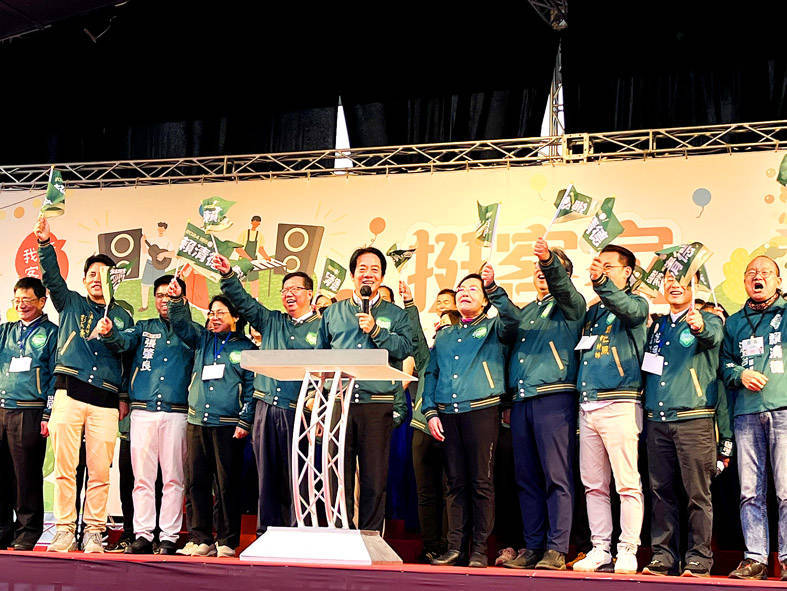《TAIPEI TIMES》 Lai addresses children’s healthcare

Democratic Progressive Party presidential candidate Vice President William Lai, front center, speaks at a campaign event in Taoyuan yesterday. Photo: CNA
By Chou Ming-hung and Jonathan Chin / Staff reporter, staff writer, with CNA
Vice President William Lai (賴清德), the Democratic Progressive Party’s (DPP) presidential candidate, yesterday pledged to improve the nation’s healthcare standard for children if elected.
Lai made the remarks while attending an event in Taipei marking the annual meeting of the Taiwan Association for Children with Severe Disease.
The quality of care for children with cancer or other rare, hereditary or life-threatening medical conditions would be targeted for improvement as these diseases have the highest impact on child mortality and families, he said.
If elected, Lai said he would continue the government’s push to establish children’s hospitals outside of the Taipei metropolitan area.
His administration would also keep working on creating a digital platform to help doctors working in underserviced regions via teleconference and efficiently transfer patients to specialist care when needed, he said.
Additionally, a NT$10 billion (US$319.81 million) fund would be created for cancer drug research, Lai said.
Later yesterday, he attended a campaign event in Taoyuan, outlining the DPP’s efforts to promote Hakka-related affairs as he sought support from Hakka voters.
At the event, he was joined by Vice Premier Cheng Wen-tsan (鄭文燦) and four DPP legislative candidates in singing Hakka Vug ha, the battle anthem of the DPP for the Jan. 13 general election.
Lai gave an outline of his Hakka policy, saying he would protect the language, culture and economic future of Hakka Taiwanese if elected president, adding that he would promote Hakka language in education and public services.
Lai gave an outline of his policy for Hakka Taiwanese, saying he would increase Hakka language use, encourage young people to connect with their cultural roots and raise Hakka cuisine’s profile in the nation’s restaurant sector.
Hakka-majority regions would see an effort to boost a cultural industry and tourism that emphasizes the uniqueness of their culture, he added.
新聞來源:TAIPEI TIMES

















